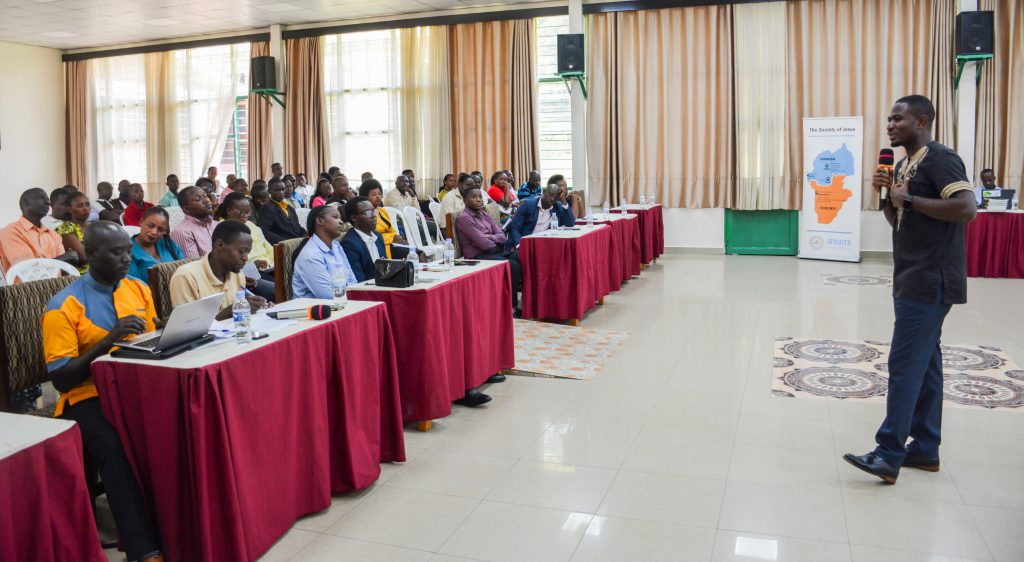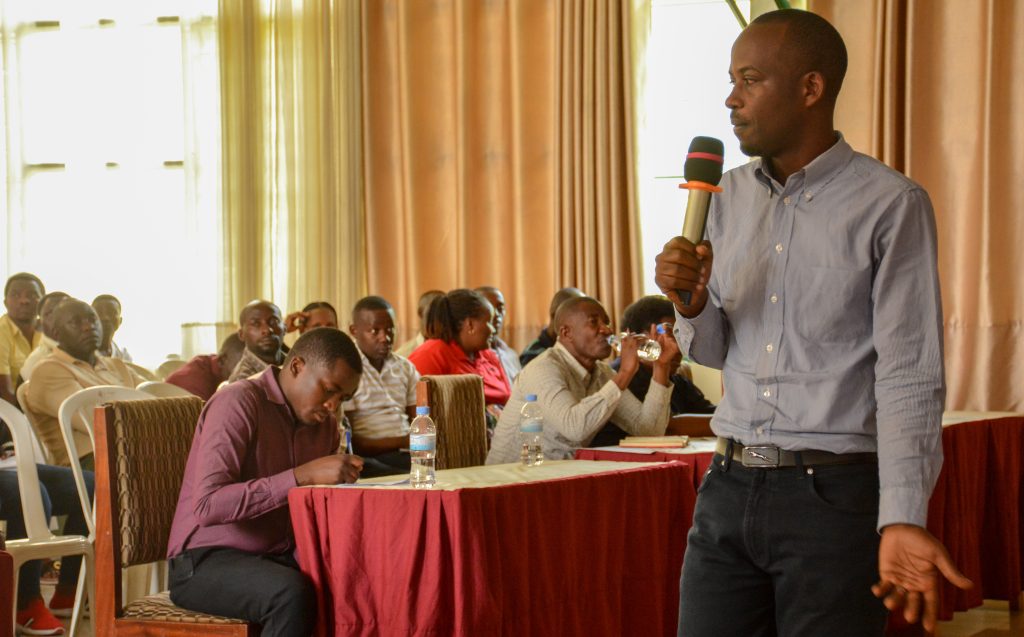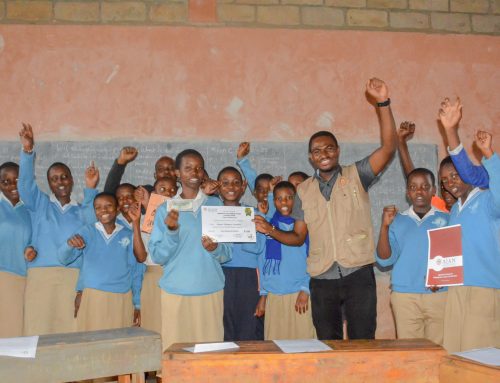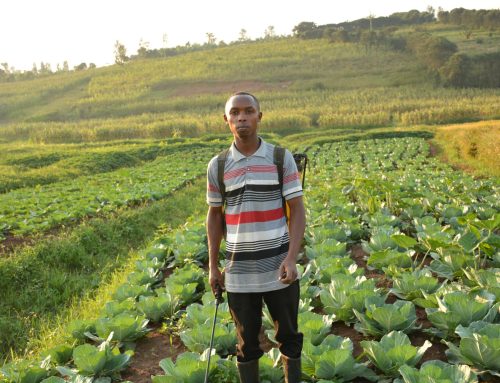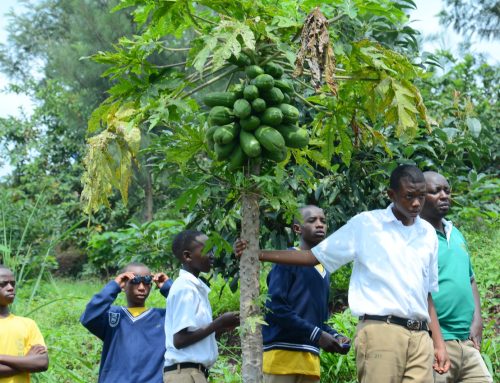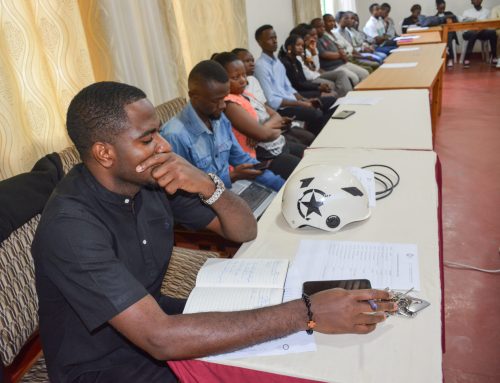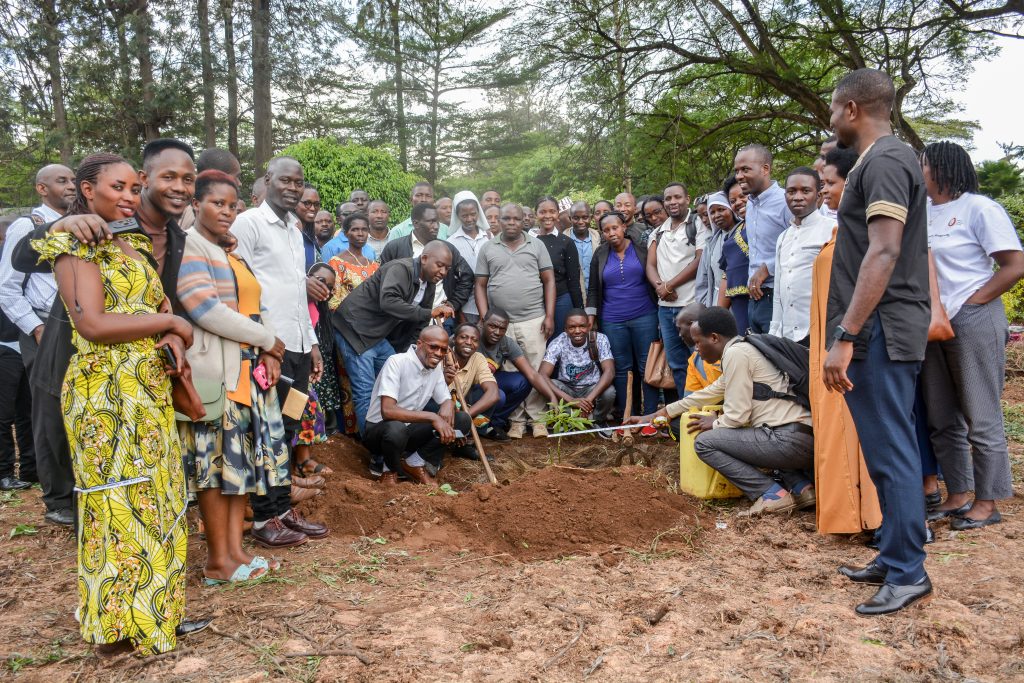
Jesuit Urumuri Centre (JUC) on October 15th 2025, convened at its premises a workshop for onsite facilitators from its partner schools under the School Feeding and Environment Project, an initiative that combines environmental conservation with improved nutrition for vulnerable students in JUC’s partner schools.
The session began with JUC programs manager, Alexis Nzayituriki, sj, giving a brief overview of the Jesuits Rwanda–Burundi Province and the mission of JUC, rooted in the values of human dignity and the Gospel. He highlighted that the project responds to two pressing issues — environmental degradation and school feeding program — aligning with Pope Francis’ call in Laudato Si’ to care for our common home while uplifting vulnerable students. By promoting environmental stewardship and contributing to the national school feeding program, JUC seeks to nurture both the planet and the young learners who depend on it.
Alexis outlined the project’s implementation strategy, which includes identifying partner schools, holding the current facilitators’ workshop, forming environment clubs (which all schools already have), organizing tree planting activities, and conducting field visits.
He explained that the initiative complements government efforts to plant trees nationwide, noting:
“Our project kills two birds with one stone — conserving the environment and providing fruits to vulnerable children.”
He encouraged facilitators to take ownership of the project, saying,
“We will not be at all 30 schools every day. As our collaborators, you will be there in our absence — teaching environmental conservation and managing the trees. Ownership will be the key to this project’s success.”
Facilitators raised questions and concerns about soil quality, tree planting timing, and water availability. Alexis reassured them that JUC would work closely with schools to address challenges, especially by supporting them with technical guidance where necessary. He emphasized the importance of collaboration, particularly in ensuring proper care for the trees.
To keep students motivated, Alexis announced that JUC will organize competitions in which students can creatively express their understanding of environmental conservation through poems, songs, and sketches based on the project’s training manual.
Some facilitators also worried about pests and diseases, but one participant shared a powerful testimony, explaining how student ownership at her school had eliminated such issues:
“Our students take care of the vegetables and tree tomatoes. We haven’t needed to buy vegetables in years.”
Guest speaker Mr. Robert Nzabamwita, the invited agronomist, led a practical session on tree selection and care. He explained that the project chose fruit trees — avocado, orange, and mango — because they thrive in Rwanda’s tropical climate, enhance school environments, and can yield fruit for up to 15 years.
He cautioned schools against requesting more trees than they can manage:
“If you focus on quantity, you might lose them all. But with the right number and proper care, you’ll enjoy a plentiful harvest.”
Mr. Nzabamwita also discussed essential factors for healthy trees — light, water, and soil care — and warned about phototropism, where trees deprived of sunlight grow weakly in search of light. He provided guidance on hole measurements, watering, weeding, mulching, and pruning.
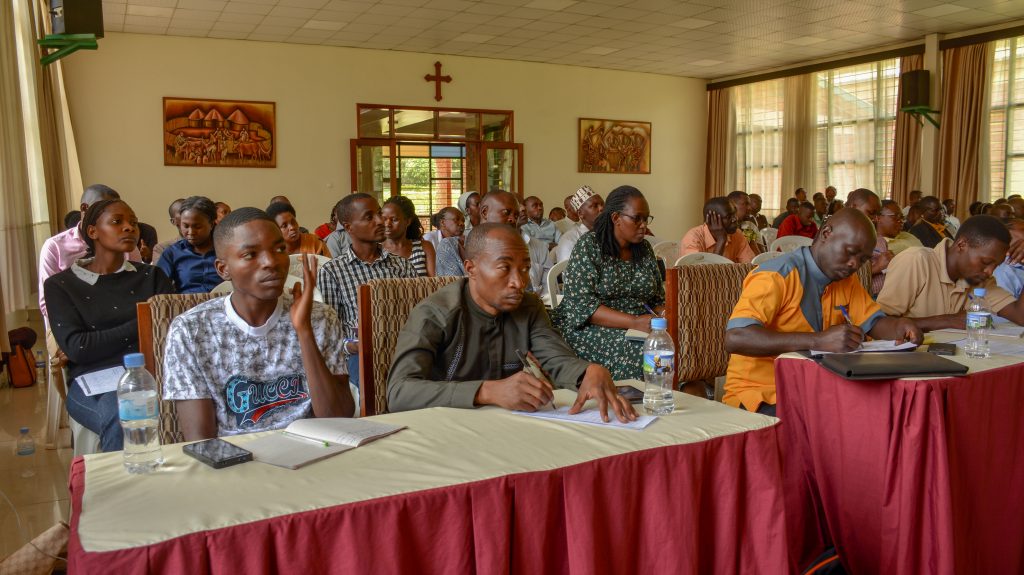
Addressing questions about fertilizer and pesticide costs, he advised schools to produce organic compost using waste from school kitchens, such as fruit and vegetable peels. He also emphasized that providing basic resources for tree care would form part of each school’s contribution to the partnership.
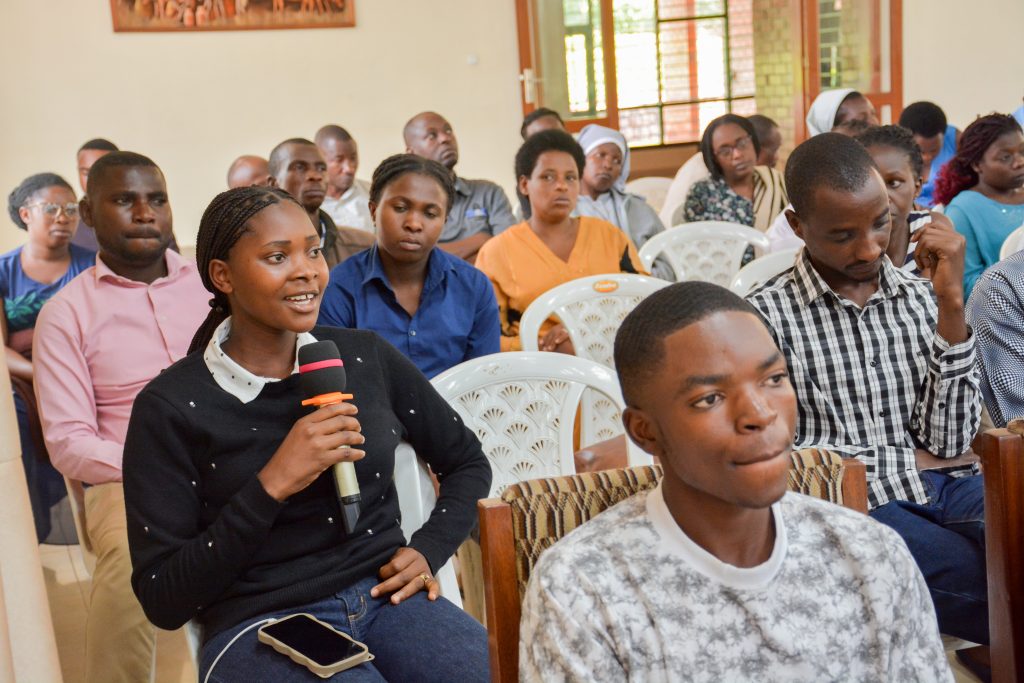
Participants expressed deep appreciation for the session, noting that the workshop had given them practical skills and renewed motivation. Some even committed to replanting trees that they already have at their schools using the improved techniques they had learned.
In closing, Alexis announced that JUC staff and the agronomist would soon visit all partner schools to assess soil conditions and later deliver the fruit trees for planting — marking the next milestone in this innovative and impactful project.
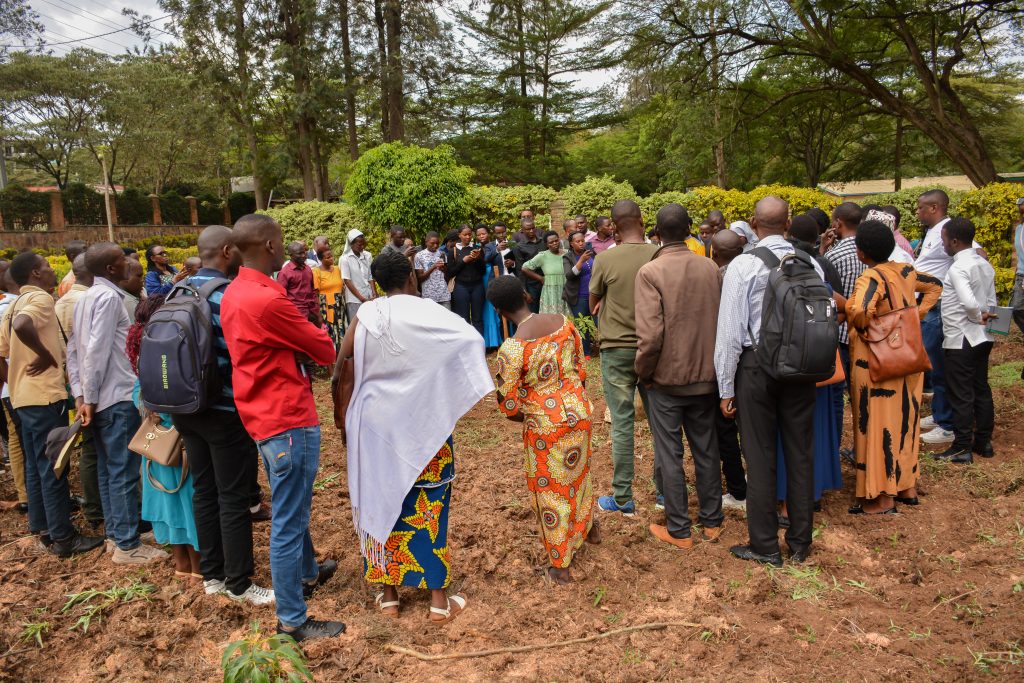
The concluding activity of the day was the demonstration of tree planting in JUC’s farm.
This is the second phase of this project, the first having been implemented in 2021, and having had positive impact in the schools JUC partnered with then.
Through this project, JUC continues to nurture a generation that values both sustainability and social responsibility — helping communities grow greener and stronger, one school at a time.
Henriette Mushimiyimana
JUC Communications Officer.

